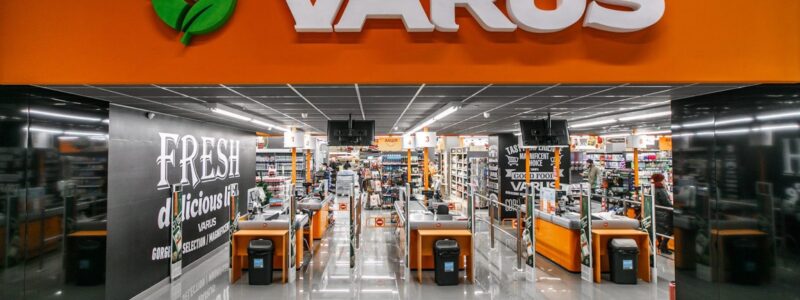
The European Bank for Reconstruction and Development (EBRD) is providing the VARUS Group retail chain with a $25 million loan to expand its retail operations and improve business sustainability, according to the EBRD press service.
This food security project, with a total value of $53.1 million, will receive a 22% first loss risk coverage provided by the EU under the Investment Facility for Ukraine (UIF) through the Municipal, Infrastructure and Industrial Resilience (MIIR) program. To date, the EU has allocated EUR 207 million in guarantees and grants to Ukraine through the EBRD under the Ukraine Investment Facility (UIF), 87% of which has been provided to the private sector.
The guarantee for Varus plays a crucial role in mitigating the heightened macroeconomic and geopolitical risks associated with the investment. The support is provided in recognition of the project’s alignment with the bank’s Green Economy Transition (GET) approach through energy-efficient modernization, the installation of renewable energy sources, and the improvement of sustainable logistics. It includes the installation of solar panels, high-efficiency lighting, and reversible split air conditioning systems with low global warming potential.
VARUS Group is the fifth largest food retail chain in Ukraine. The chain consists of 114 stores, most of which are located in the eastern part of the country, employing around 7,500 people. Despite the closure of some retail outlets due to the war, the group has opened new stores and been able to return to its pre-war size. The EBRD loan will enable further expansion of the VARUS network, the refurbishment and modernization of equipment in existing stores, the lease of a new warehouse, and the installation of photovoltaic systems to reduce dependence on the electricity grid.
Cooperation with the EBRD will help preserve Ukraine’s human capital and the livelihoods of workers despite the ongoing challenges of wartime through technical cooperation. The project will also benefit from a co-investment grant to optimize warehouse logistics, improve energy efficiency, and address urgent human capital needs.
Technical support is funded by the EBRD’s Multilateral Donor Fund “Action for Equality and Gender Equality” (A4EG), while project preparation and the co-investment grant are funded by the Japan-EBRD Cooperation Fund.